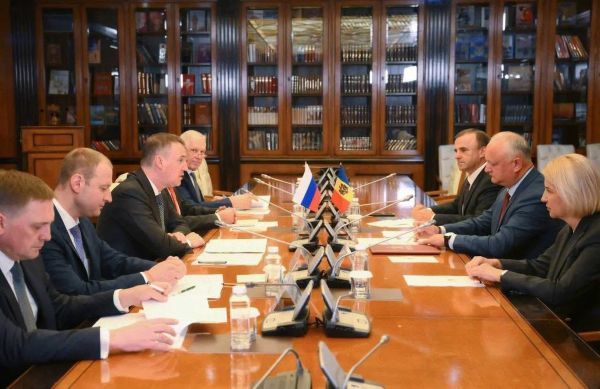On 11 July, the Parliament of Moldova formally adopted a declaration regarding the nation’s intention to pursue membership in the European Union. This declaration was passed by members of the pro-EU ruling Action and Solidarity Party (PAS) following the departure of opposition party members from the session. However, it is a symbolic affirmation of Moldova’s dedication to its European integration efforts.
The opposition, composed of anti-EU and pro-Russian parties, is reportedly collaborating with Moscow in an attempt to influence the upcoming parliamentary elections scheduled for 28 September, intending to establish a pro-Moscow government and obstruct Moldova’s EU aspirations.
The declaration recognises significant milestones achieved in the European integration process, including Moldova’s attainment of candidate status in 2022 and the strengthening of bilateral relations with the European Union. MPs called upon all political entities, state institutions, and civil society to sustain and advance the progress already made.
MPs underscored the advantages of partnership with the EU, highlighting the potential for increased economic opportunities, community support, enhanced mobility, and improved safety and security, especially in a complex international context. Furthermore, they urged the forthcoming parliament to maintain Moldova’s European trajectory and ensure the continuity and implementation of vital reforms.
The deputies appealed to the government to ensure the conduct of free and fair elections, prevent foreign interference, and combat electoral corruption. Deputy Prime Minister for European Integration Cristina Gherasimov expressed support for the declaration approved by parliament. “We will continue our efforts to ensure that our country achieves EU membership by 2030,” she declared.
In this context, Gherasimov, along with Doina Nistor, Deputy Prime Minister and Minister of Economic Development and Digitalisation, engaged in discussions in Brussels with Gert Jan Koopman, Director-General of the Directorate-General for EU Enlargement and Eastern Neighbourhood (DG ENEST). Their discussions focused on the next steps in Moldova’s accession negotiations, the Growth Plan, and opportunities for trade expansion.
Moldovan politicians in Moscow
The opposition parties in Moldova are conducting separate electoral campaigns; however, their primary objective appears to be undermining the current government and President Maia Sandu. These parties are advocating for a future in which Russia is considered an ally, rather than the European Union.
The Party of Socialists of the Republic of Moldova (PSRM), headed by former President Igor Dodon, is joined by the Victory Bloc, which fugitive oligarch Ilan Șor established in Moscow in April 2024. Additionally, the “Alternativa” Bloc, founded in 2025 by the now-banned from entering the Schenghen area, Chișinău Mayor Ion Ceban and 2024 presidential candidate Alexandru Stoianoglo, as well as the Partidul Nostru, led by presidential candidate Renato Usatîi, are disseminating disinformation regarding Moldova’s European Union path, characterising it as a national economic and social crisis.
On 12 July, Igor Dodon once again visited Moscow. Accompanied this time by Irina Vlah and Vasile Tarlev, both opposition figures in Moldovan politics. Vlah, who served as the Head of the autonomous region of Gagauzia from 2015 to 2023, has been spreading misinformation about Moldova’s obligations to the European Union and Ukraine. For instance, on 20 May, she expressed on her social media account that “the globalists and Moldova’s current government are militarising our country. This could lead to war.”
Tarlev, a former Prime Minister of Moldova and leader of the nationalist Revival Party, joined Dodon and Vlah in meetings with Russian Deputy Prime Minister Alexander Novak, during which they promised that “after a change in power,” they would reinstate Russian gas supplies to Moldova. Additionally, Dodon met with Dmitry Patrushev, the Deputy Prime Minister of the Russian Federation, discussing key issues related to bilateral cooperation and the potential revival of trade relations with Russia.
Following his visit to Moscow, Dodon travelled to Minsk, Belarus, to meet with Alexander Lukashenko on 12 July. He shared photographs of this meeting on social media, describing Lukashenko as “a friend of Moldova, a true manager who consistently acts in the interests of his people.” Concurrently, fugitive oligarch Ilan Șor remains in Moscow, where it is still uncertain if his party will participate in the forthcoming elections. Nevertheless, he organises his electoral campaign from the Russian capital.
